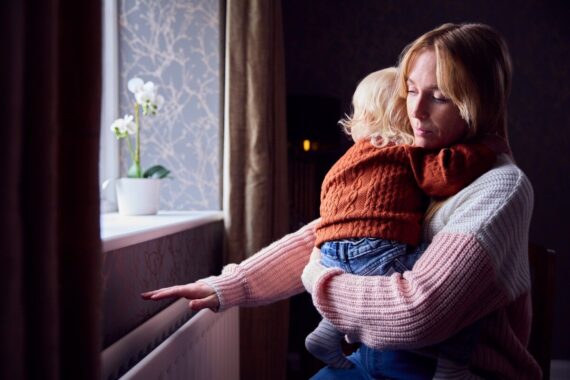Seven out of 10 GPs have seen a rise since last year in the number of patients presenting with problems linked to the increased cost of living, according to a new RCGP survey.
GPs said they had noticed more problems associated with poor diet and poverty, as well as increasing requests for help with accessing council services and financial advice.
In response, the RCGP has called on the Government to increase support for both patients and general practice, with a particular focus on deprived areas.
Of the 1,855 GP respondents, 93% were worried that this rising demand related to the cost of living would ‘limit their ability to provide care that patients need’.
RCGP chair Professor Kamila Hawthorne warned that this ‘worrying’ trend could also have a knock-on effect on GP wellbeing.
The college has called on the Government to reform funding formulas to address health inequalities, so that funding is flexible to meet local needs and takes into account levels of deprivation.
Professor Hawthorne said: ‘Our GPs witness daily the devastating health effects that the rising cost of living and spiralling deprivation is having on patients in many communities across the UK.
‘The link between poverty and worsening health has long been established, taking a physical, emotional, and psychological toll which can result in the early development, or exacerbation of existing multiple chronic conditions.’
Professor Hawthorne said GPs are ‘not financial advisers or housing officers’ but are often ‘the first ports of call in a crisis’.
She said: ‘GPs fully understand how social factors cause health inequalities and from there, serious problems in physical and mental health, but because they often have no power to make the changes needed, they are unable to offer solutions to their patients which get to the root of the problem.
‘Exacerbating the situation is the fact that the areas most affected receive the least support to tackle the crisis.’
She added that although GPs will always do the ‘very best’ for their patients #demand for our services is rising at the same time as we have more GPs leaving the profession than entering it’, with general practice itself ‘now in dire need of support’.
‘Our patients and our GPs deserve better. That’s why it is imperative that the Government increases support for general practice and all our patients, with a particular focus on GP practices in deprived areas.’
Last year, the Health Foundation published a report which showed that practices in poorer areas received around 7% less funding per patient.
At the start of this year, Pulse revealed that 22% of GP consultations were mental or physical health problems caused or exacerbated by the cost-of-living crisis.
Healthwatch England advised in June that GPs should be encouraged to offer over-the-counter (OTC) medicines on prescription to patients struggling with the cost of living.
And earlier this month, results from a pilot scheme showed that heating on prescription – which helped some NHS patients with their energy bills – can cut GP appointments.
In February, Pulse looked at the impacts of sky-high inflation on patients’ health and GP practices.
Pulse October survey
Take our July 2025 survey to potentially win £1.000 worth of tokens












